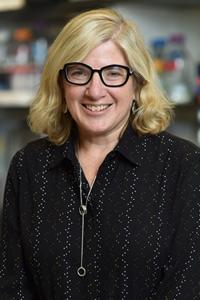HICCC, Spelman College Cultivate Next Generation of Leaders in Cancer Research
For an aspiring cancer researcher, finding your first opportunity and mentor can be a difficult task. The challenge is even greater for students who historically have been excluded from science and academia.
Since 2015, the Herbert Irving Comprehensive Cancer Center (HICCC) has hosted the Continuing Umbrella of Research Experiences (CURE) program, offering college students and local high school students exposure to hands-on experiences in science, medicine, and research. The program seeks to recruit students who are under-represented people of color, of low socioeconomic status, and/or the first in their family to attend college. This year, CURE established a new partnership with Spelman College, a historically black liberal arts college for women, connecting their budding scientists with faculty at Columbia University for a summer of learning and scientific exploration.
This year, seven students participated in the CURE program, guided by a team of six mentors from the HICCC. Their responsibilities spanned the breadth of research activities at Columbia, from data analysis and systemic reviews to community outreach and engagement activities. Though this year's program was exclusively virtual due to the pandemic, each student had the opportunity to make a meaningful impact on their mentor's areas of research.
Jamirra Franklin was one Spelman student who participated, working alongside CURE Co-Director and HICCC member Jasmine McDonald, PhD, who also serves as an assistant professor of epidemiology at Columbia Mailman School of Public Health. A health sciences major, Jamirra’s interest in medical research first began when she learned in college about how black women suffer from higher rates of maternal mortality.
“As an African American woman who hopes to have children and has seen family members have trouble during pregnancy, I realized that this is an issue I wanted to go into,” Jamirra says.
Jamirra was introduced to the CURE program by her department chair at Spelman, who encouraged her to apply. Soon after, she met Dr. McDonald whose research matched her interests in maternal health. “Dr. McDonald is working to understand how hair products women use daily can affect pregnancy and cause breast cancer. My research interests are in reproductive health and breast cancer, so it was exciting how we lined up so well,” she explains.
As a member of Dr. McDonald’s research team, Jamirra was tasked with evaluating different strategies to reach patients and drive recruitment to a pilot study in northern Manhattan, investigating the health effects of hair care product use among women of color. She’s been grateful for the opportunity and the strong connections she has made even while working remotely. Though much of this summer was about providing Jamirra with real world experience and guidance, Dr. McDonald emphasized just how important her contributions have been to the team.
“Attempting to recruit participants through social media for an educational intervention has been a daunting fish-out-of-water experience,” Dr. McDonald says. “Jamirra joined the team and immediately developed a complex and engaging social media campaign for recruitment and retention, while also highlighting the institutional barriers to this form of recruitment.”
Jamirra’s work has been so instrumental that Dr. McDonald asked her to stay on the team beyond the summer, continuing her work while finishing her final year at Spelman. When she looks to the future, Jamirra says the CURE program has reinforced her desire to work in medical research. “When we’re researching health disparities that affect Black women, it’s important to have researchers and doctors that look like the communities they’re researching. I want to continue doing research while taking my education to a higher level and ultimately becoming a physician.”
As for the future of CURE, the hope is the program will expand to build partnerships alongside other historically black colleges and universities. But for the moment, CURE Co-Director May Beth Terry, PhD, is excited to deepen the program’s partnership with Spelman College and celebrate a successful summer of learning and research for students.
“Collaborating with Spelman College has been an excellent step for the CURE Program,” says Dr. Terry, who also directs the HICCC’s Community Outreach and Engagement Office. “Spelman students provided outstanding support to our faculty during their summer spent here, and we hope that experiencing the HICCC’s innovative and multidisciplinary environment will set them on the path to becoming the next generation of leaders in cancer research.”


